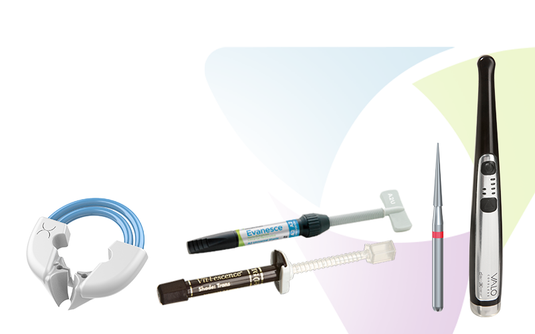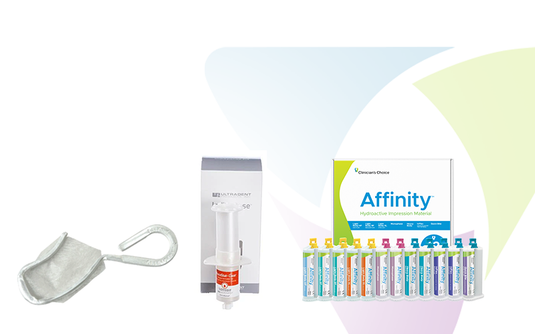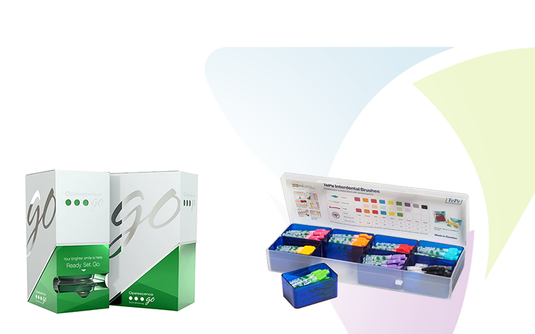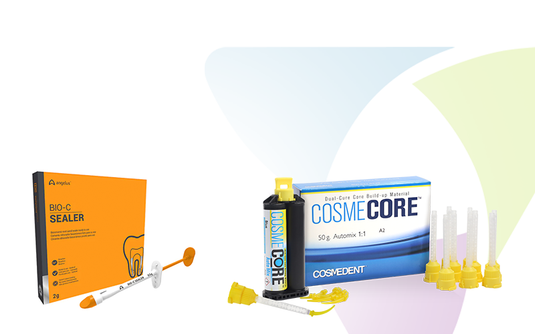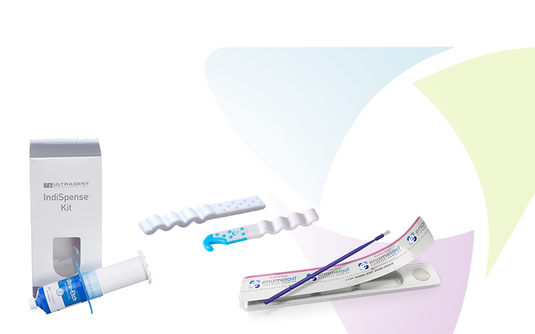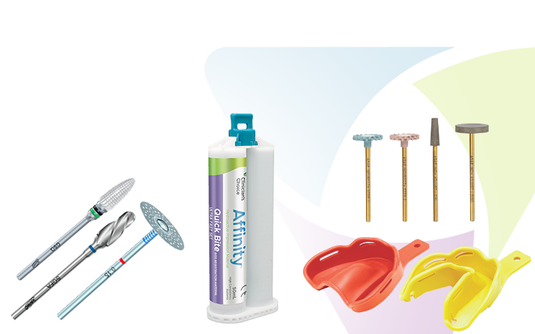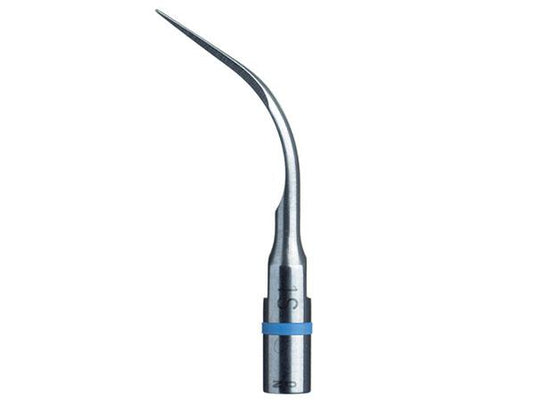
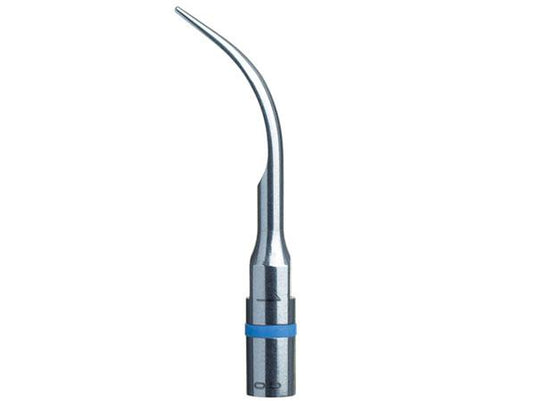
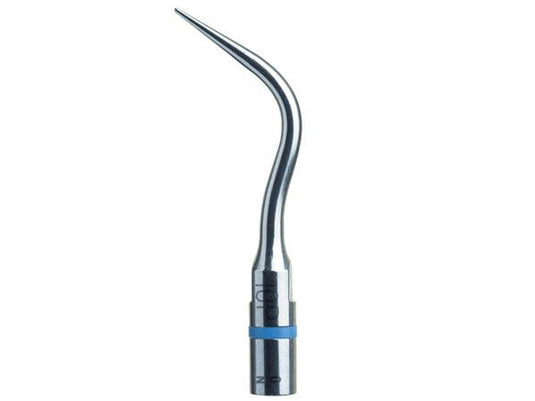
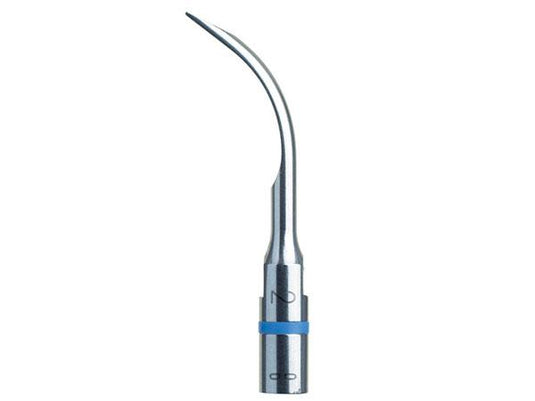
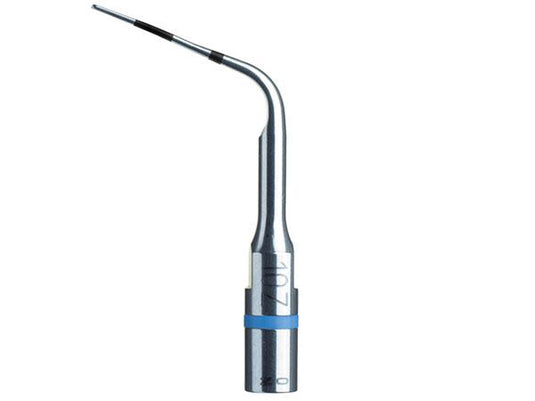
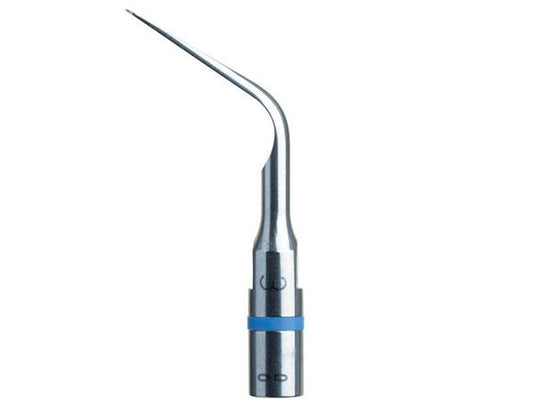
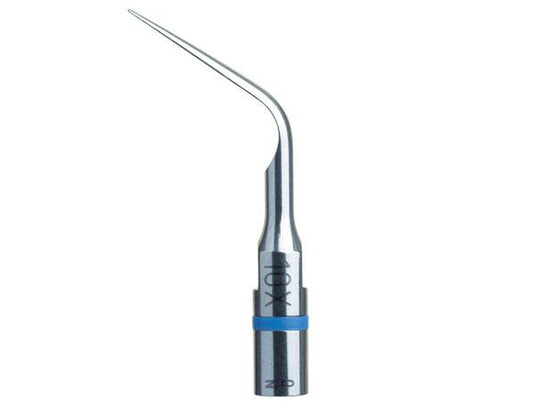
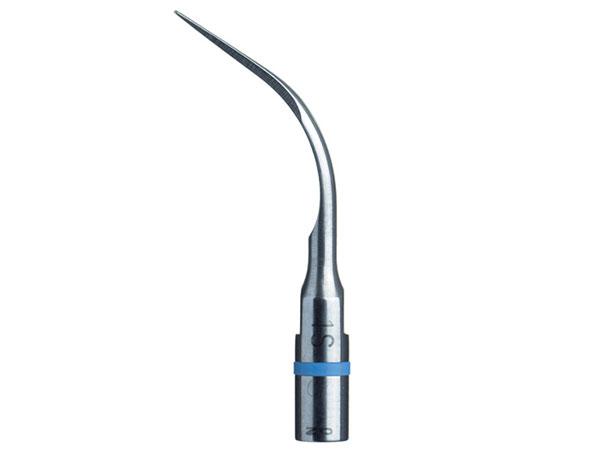
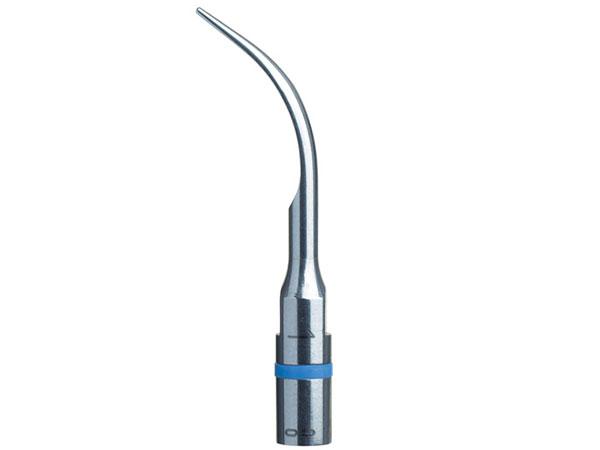
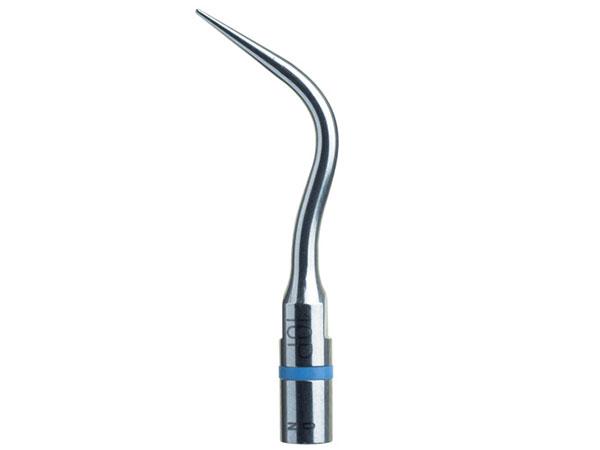
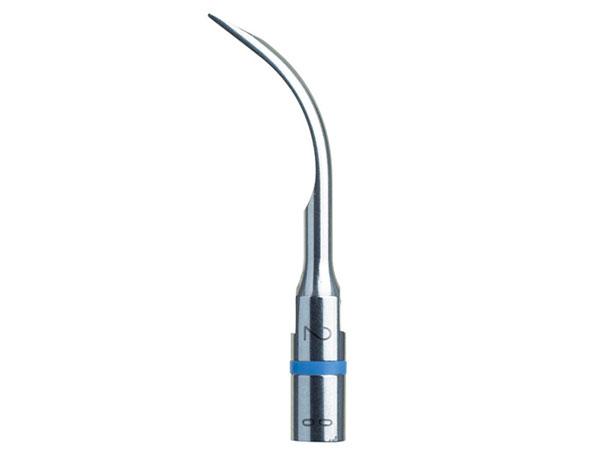
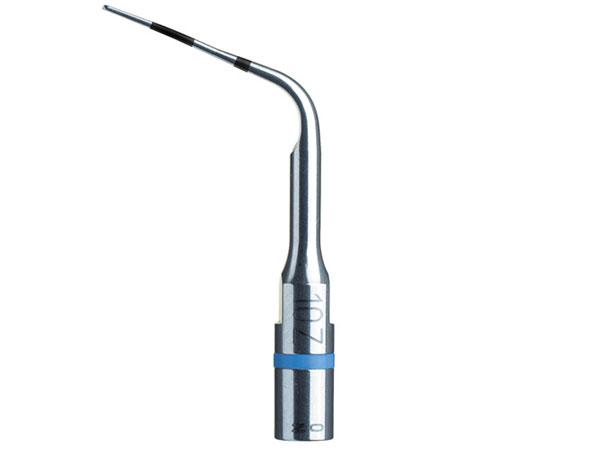
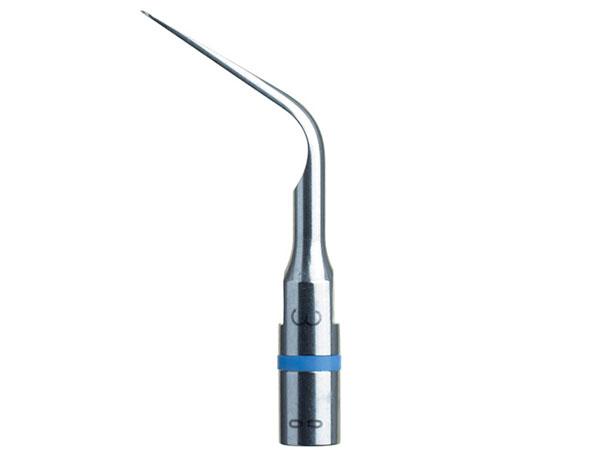
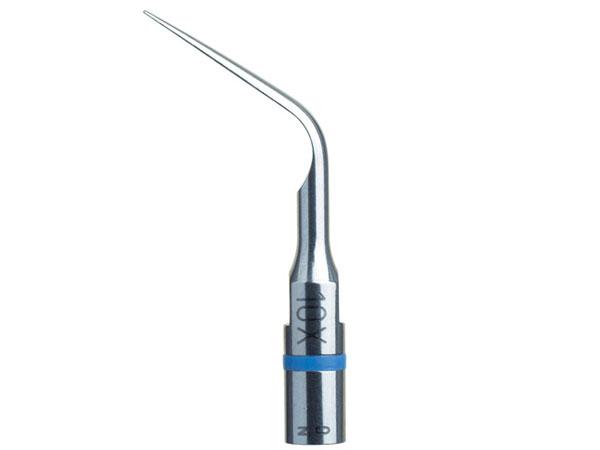
- Product Details
- Clinical Technique
- Technical Details
- Configurations
- FAQ
- Resources
- Accessories
NEWTRON® technology and tips respond to practitioners' clinical expertise. The ultrasonic micro-oscillations transmitted from the handpiece to the tip generate perfectly linear movement. Therefore the tip undergoes to-and-fro movements in the axis of the handpiece. The active area of each tip is located on the distal 2-3 mm. This working section may be applied on the surface to be treated, moving progressively from the crown to the root.
NEWTRON technology guarantees efficacy and safety:
- Preservation: controlled vibrations, steel tip quality, total irrigation control
- Efficacy: frequency adjustment, power regulation, powerful cavitation
- Comfort: linear and regular vibrations
Indications for Use
- 1S Supra Gingival Scaling Tip. Developed for supra and sub-gingival scaling. Its more active lateral edges make it suitable for scaling the interproximal spaces. Finer and longer than tip No.1, it is also powerful and robust.
- #1 Universal Scaling Tip. Recommended for simple cases: gross supra-gingival scaling. Tangential orientation to the surface. To-and-fro sweeping to "detach" the tartar whilst respecting the enamel.
- Heavy Calculus Tip #2. Indicated for the removal of significant supra-gingival deposits. Apply the flat part to the tooth surfaces.
- Stain Removal Tip #3. Removal of marks and stains (tobacco, tea, coffee, etc.). The tip is used by applying the rounded extremity to the surface to be treated.
- 10P Scaling and Root Planing. Fine round instrument suitable for scaling pockets less than 2-3mm deep.
- 10Z Subgingival Scaling Tip. Recommended for scaling medium pockets (< 4mm). Removal of biofilm and soft deposits, while evaluating the depth of the pockets using the marks every 3mm. This tip is efficient for maintenance treatment in patients with good dental hygiene.
- 10X Interproximal Scaling Tip. With its flat active part, it is particularly suitable for the interproximal spaces and supra-gingival scaling. Its anatomical shape allow fast and efficient procedure.
Compatible with Acteon NEWTRON Ultrasonic Generators.

Universal tip. Treating simple cases and gross supra-gingival scaling.

Slim. Supra- and subgingival scaling, shallow pockets debridement.

Voluminous calculus. For removing voluminous supragingival deposits.

Colorations. For removing discolorations and stains.

Scaling pockets < 2-3mm. Supra-gingival scaling for children and shallow pockets scaling.

Interproximal. Interproximal spaces scaling thanks to its anatomic shape.

Scaling pockets < 4mm. Biofilm and soft deposit removal. Pockets depth measurement with the graduations.
The linear movement of the tip can be used in various ways which are also complementary:
Fig. 1 shows sweeping: indicated for scaling and disrupting the biofilm. The tip must be applied tangentially on the part to be treated, and used over its entire active section. Fig. 2 shows hammering: used to fragment large tartar deposits and remove cements. The tip must be positioned facing the element to be detached, and used without pressure on its point. Fig. 3 shows how ultrasonic vibrations also cause a biological effect called cavitation, which has interesting benefits. When a liquid is exposed to ultrasonic vibrations, the acoustic wave induces quite large pressure changes to create small bubbles of vapour called cavitation. These bubbles are extremely unstable and burst violently, leading to the fragmentation and removal of the deposits. In addition, cavitation creates micro-bubbles of oxygen which have a cleansing, disinfectant effect. (Lea S.C. "Cavitation damage to ultrasonic scalers" - Dental Health 2008; 47:2-6).

1S Supra Gingival Scaling Tip (Item Number: 820245): 1 ea.
#1 Universal Scaling Tip (820246): 1 ea.
Heavy Calculus Tip #2 (820247): 1 ea.
Stain Removal Tip #3 (820248): 1 ea.
10P Scaling and Root Planing (820253): 1 ea.
10Z Subgingival Scaling Tip (820254): 1 ea.
10X Interproximal Scaling Tip (820359): 1 ea.
Q: How do I change (or place) the tip?
A: The tip threads onto the end of the autoclavable handpiece (AHP). The tip-enclosing wrench provided prevents you from having to touch the actual tip. You orient the slot in the wrench around the base of the tip, press the wrench into place, and turn the tip counter-clockwise to loosen the tip. The tip should always either be applied on the AHP or inside the wrench. First, hand tighten a tip to the handpiece. Then align the hole of the wrench to the flat sides of the tip and press down. The wrench will lock into place. Now unscrew the wrench and the tip remains inside, helping prevent the loss of tips or injuring hands and fingers. Hand tightening only needs to be done the first time using the device or acquiring new tips and wrenches. The tip should remain in the wrench unless it’s in use. The torque wrenches have a special design that will prevent over-tightening of the tip on the AHP. When the tip is tight on the AHP, continue to force the wrench in a clockwise motion until you hear an audible “click”. You will then know the tip is sufficiently tight on the AHP. DO NOT DO THIS WITH THE FLAT COLOUR-CODED WRENCHES.
Q: Can I sharpen these tips?
A: No. These tips are not to be altered in any way. Sharpening these tips will negatively affect the tip’s ability to vibrate properly.
Q: How long do the tips last?
A: Most users experience at least 6 – 9 months of use prior to having to replace a tip due to its wear. ACTEON offers the widest variety of NEWTRON tip designs and manufactures the thinnest perio tips on the market. ACTEON was the first company to develop tips with an internal coolant spray, diamond coated tips and pure titanium tips for implant maintenance. ACTEON manufactures NEWTRON tips for all applications including:
- periodontics
- subgingival scaling
- root planing
- implant maintenance
- biofilm disruption
- cavity preparation
- margin preparation
- condensing of composites
- endodontic retreatment
- post and crown removal
- apical surgery
View the Acteon Tips User Manual
Recommended Torque Wrenches: Acteon Torque Wrenches

